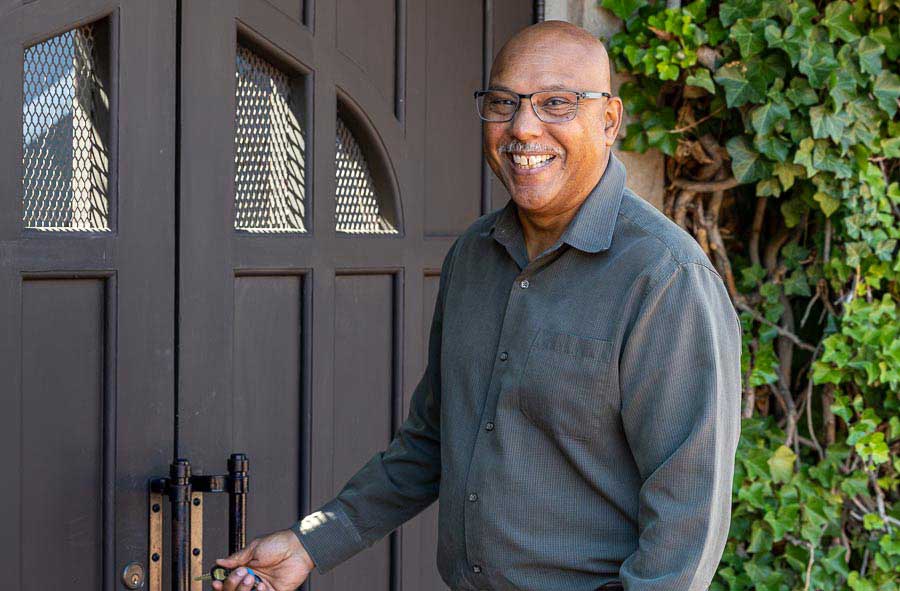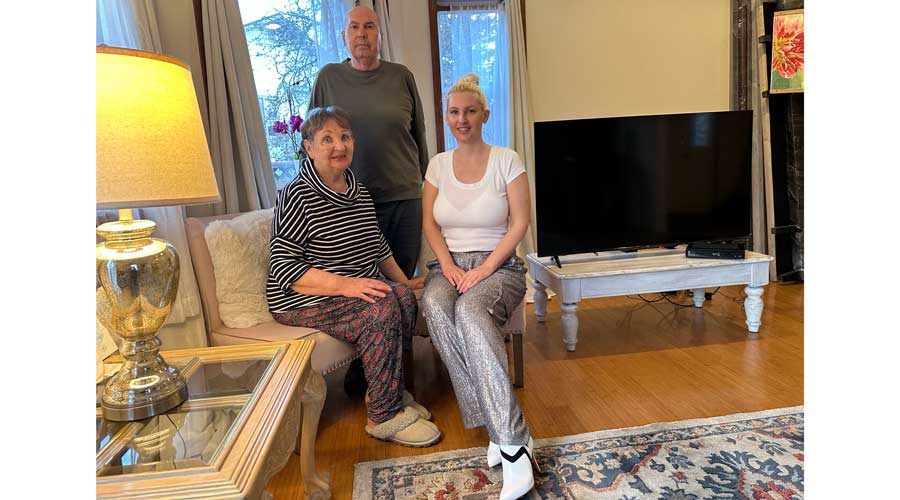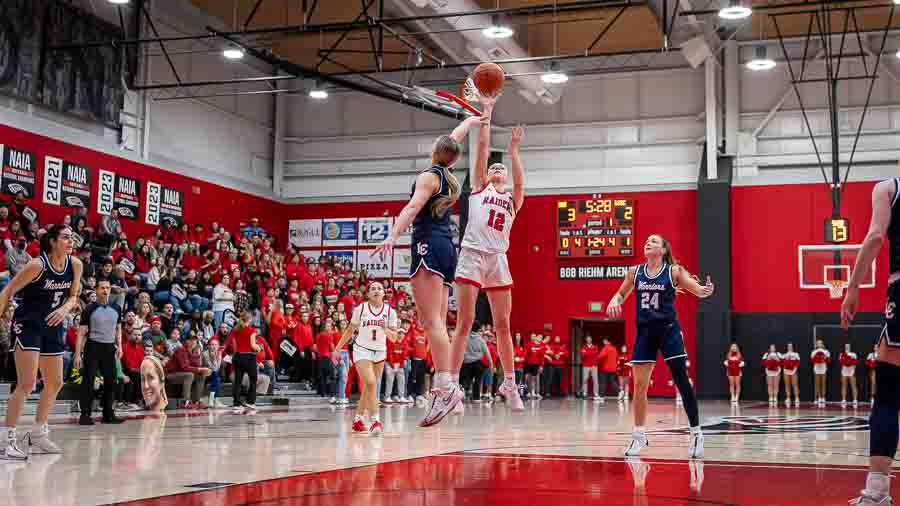What to know about adopting a cat with different needs
By Midge Raymond
All cats are special, but some are more so: those who have special needs. Melody Spiegel of Melly Cat Rescue, a nonprofit based in Jacksonville, estimates 25 to 30% of the cats she rescues are special-needs cats.
“A special-needs cat is one who requires extra care and/or ongoing vigilance,” Spiegel says. Cats conditions may range from physical disabilities to chronic medical conditions to behavioral issues. Melly Cat has rescued cats with asthma, stomatitis, irritatable bowel syndrome (IBS), enucleations (eye removal), amputated limbs and neurological issues.
This spring, as kittens overwhelm rescue organizations in the Rogue Valley, prospective adopters may want to keep in mind the many special-needs cats who usually wait a long time to find their permanent homes.

This is because special cats need special homes. Spiegel says, “These kitties need humans who can administer meds, feed special diets, monitor activity, provide a safe environment and keep them inside.”
Ashland resident Ariel Israea adopted Potsticker (now called Lev, which is Hebrew for “heart”) from Melly Cat last summer and had been looking specifically for a special-needs cat to add to her family. She had seen a notice that Melly Cat Rescue was at capacity, and she knew that “adopting a cat that is likely to spend longer in rescue clears the way for a lot more animals to be saved.”
When she saw Lev on the Melly Cat website, she says he felt like the right one. And Lev, who has chronic upper respiratory issues and limited vision, seemed to think so, too. When he arrived at Israea’s home, she says, “This small panther strolled out and looked at the high ceilings and seemed to say, ‘This is more like it.’”
In addition to helping Melly Cat, adopting Lev has been good for Israea’s family as well. “Adopting an endearing animal that has been passed over due to a special need, blemish, age or color can model empathy and inclusivity for children,” Israea says.
Adopters interested in special-needs cats need to budget for supplies and medications, as well as be willing and able to administer medication and any other care the cat may need. Most of all, adopters need to have patience and understanding. These cats “might need a little extra TLC,” Spiegel says, “but they will fill your home with love and appreciation.”
Israea found that Lev’s care was ultimately easier than expected. Since adopting him, she’s been able to adjust down his meds under the care of her veterinarian. “He just gets a small pill a couple times a day and eye drops if he needs them,” she says. “He’s had special needs since he was a kitten, so he’s used to the pills. It’s easy. He’s just the greatest guy.”
Israea, who discussed Lev’s history and medical needs with Spiegel before adopting him, has sound advice for adopters of special-needs cats. “Do your research,” she says. “Ask the rescue questions. It might be something easy for you in particular to do — or not. Every cat is different. Be honest with yourself about what you can or cannot do, especially with behavioral issues.”
More about Melly Cat Rescue
What’s cuter than cat photos and videos? Find Melly Cat on social media: Facebook, Instagram, TikTok and Snapchat.
Want to help? Donate via Zelle or PayPal ([email protected]), CashApp ($MellyCatRescue) or Venmo (@mellycatrescue).
She also advises talking to the rescue as soon as something becomes problematic. “The rescue can help early on to keep the cat in your home. The sooner they know, the better. Don’t push yourself to the limit to be the hero.”
And for those concerned about costs, Israea suggests looking for a less expensive source for medications; different veterinarians and retailers may be able to offer the same medicine at lower costs. “Call around, look online,” she says.
Israea also notes that, like Lev, many special needs cats don’t need as much extra care as people think. Take Melly Cat’s longest resident, Gravy, for example (see her profile below). Gravy’s neurological issues mean her back legs don’t work as well as those of other cats, but “she gets around fine,” Israea says. “She just needs to be kept indoors, as she can’t outrun a predator. She’s shy with people but loves other cats. For someone seeking a companion for their indoor cat, she’d be as low-maintenance as any other.”
Melly Cat’s adoption fees are $100 for all cats and kittens, and $170 for adopting a pair together. “As with any cat, they can bring an immense amount of love and happiness to a home,” Spiegel says of cats with special needs. “It’s an extra special feeling to know you’re giving them a chance, when not many people would.”
A Q&A with Gravy, who has neurological issues in her back legs. She is about four years old and is Melly Cat Rescue’s longest resident.

Catty Corner: What brought you to Melly Cat Rescue?
Gravy: I was trapped while living with my small colony in Medford. I had several litters of kittens prior to this, and some of them lived there with me!
CC: What are you looking for in your new home?
Gravy: Someone who will be patient and not expect much from me. I’m shy, and my back legs don’t work as well as I want them to. I need an indoor home because I’m too vulnerable outside.
CC: What should your new humans know about you and your needs?
Gravy: I don’t require much! Just love, food, a cozy place to nap and — oh yeah, a short litter box that’s easy for me to climb into. Sometimes I need to go to the vet to have mats shaved, and I tolerate it pretty well. I really like treats, and I love having kitty friends!
Likes: Naps, treats, other cats. Dislikes: Being petted, but I’m slowly coming around to the idea.
Click here to learn more and to adopt.
A Q&A with Cleopatra, who has three legs and is about 3 years old.
Catty Corner: What brought you to Melly Cat Rescue?

Cleopatra: I used to live outside with my mom and siblings, where a nice lady fed us and made sure we couldn’t have babies. One day I got my leg stuck in an animal trap — it hurt so bad! I made my way back home, and the lady took me to the vet. They called Melly Cat, and she agreed to get me the care I needed. I had my leg amputated, and am feeling much better now!
CC: What are you looking for in your new home?
Cleopatra: Someone who will give me lots of love, pets and treats! I’m still getting used to being a tripod, but I’m a tough girl and will have it down in no time. I need to stay inside from now on — outside can be dangerous!
CC: What should your new humans know about you and your needs?
Cleopatra: I’m pretty low maintenance, to be honest. I just need good food and a bed fit for a queen! Plus lots and lots of pets and snuggles. I’m even OK with my belly being touched! My new family will need to take me in for regular checkups, just to make sure I stay healthy.
Likes: Treats, cushy beds, being petted. Dislikes: Animal traps.
Click here to learn more and to adopt.
Ashland resident Midge Raymond is co-founder of Ashland Creek Press and author of the novel “My Last Continent.” Email suggestions and questions for Catty Corner to her at [email protected].




















